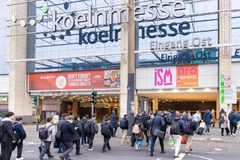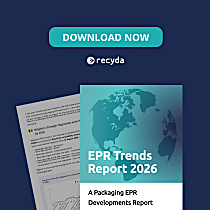Germany’s "bare minimum" approach to EU Single-Use Plastics Directive draws criticism

01 Jul 2020 --- The German Cabinet has agreed to ban the sale of single-use plastic items outlawed by the EU Single-Use Plastic Directive (SUPD) by July 3, 2021, including straws, plates and styrofoam cups and containers. This news is “neither surprising nor progressive” in the view of Deutsche Umwelthilfe (Environmental Action Germany, also known as DUH), which underscores how Germany is not maximizing its capacity to drive change in the movement against plastic pollution. Moreover, Germany’s adherence to the minimum requirements of the SUPD and failure to ban single-use plastic items deemed non-essential by the EU has let certain opportunities slip through the cracks.

“Germany has merely announced early that it will transpose the minimum requirements set out by Article 5 of the SUPD within the given deadline. I would expect Germany, which really is a front runner when it comes to reuse systems, to go beyond those bans and ban the products that are also allowed to be banned,” Henriette Schneider, Circular Economy Expert at DUH, tells PackagingInsights.
The Ministry ordinance came forward with a “one-to-one” implementation of Article 5 of the SUPD. Article 5 stipulates that Member States (MS) shall prohibit cotton bud sticks*, straws*, plates, balloon sticks and cutlery as well as food containers, beverage containers and beverage cups made of expanded polystyrene, commonly referred to as styrofoam. The EU has taken this stance against styrofoam plastic because it has a massive impact on marine species, says Schneider, since it has a high prevalence in marine debris and animals confuse it with food.
Article 4 of the SUPD, however, refers to “consumption reduction” of all kinds of single-use plastic products, specifically in terms of plastic food containers and beverage cups exceeding styrofoam packaging. The keyword “may” used in the legislation allows MS to impose marketing restrictions on single-use plastic packaging but does not require them to do so. Critically, MS are not allowed to ban products without prior EU approval as doing so may harm the common market.
 DUH sees Deposit Return Systems as instrumental in reducing marine plastic pollution.Controversially, Germany is “definitely prepared” for a ban of the Article 4 products, says Schneider, since there are alternatives available on the market. The DUH encourages the packaging industry to go further than these throwaway plastic alternatives and turn to reusable packaging solutions instead. Industry innovation in this space has given life to TerraCycle’s returnable packaging program Loop, for example.
DUH sees Deposit Return Systems as instrumental in reducing marine plastic pollution.Controversially, Germany is “definitely prepared” for a ban of the Article 4 products, says Schneider, since there are alternatives available on the market. The DUH encourages the packaging industry to go further than these throwaway plastic alternatives and turn to reusable packaging solutions instead. Industry innovation in this space has given life to TerraCycle’s returnable packaging program Loop, for example.
The DUH has also publicly commended the October Festival for only providing food and beverages with reusable plates and cutlery.
Countdown to July 3, 2021
Schneider believes Germany could have assumed more of a leadership role, considering it is in a well-experienced position to pose reuse quotas, fiscal or financial incentives or mandatory requirements for public procurement.
“Germany is a pioneer when it comes to reuse – with a 42 percent market share of refillable beverage bottles and budding systems for reusable coffee to-go cups and food containers. Furthermore, the already existing reuse systems for those applications must be supported by adequate policies,” she highlights.
According to the SUPD, PET bottles need to contain at least 25 percent recycled content by 2025, and all plastic bottles at least 30 percent by 2030. Referring to said “existing reuse systems,” PackagingInsights spoke with Schneider in May about how she predicts MS will struggle to reach the above plastic recyclate content targets without better-established Deposit Return Systems (DRS) across the EU.
Supporting systems such as these would not only contribute to resource and climate protection, but also bolster environmentally conscious practices within the packaging industry and provide regional employment opportunities.
Has COVID-19 complicated SUPD adoption?
The COVID-19 pandemic has thrown an unexpected wrench in the quest to reduce single-use plastic pollution, causing an increase in single-use packaging consumption, precipitated by a surge in takeaway meals and online purchases. Meanwhile, the foodservice industry has appeared more hesitant to accommodate reusable packaging due to food safety concerns and the spread of unfounded claims about hygiene issues.
The German Food Federation has clarified that the refill of reusable packaging is safe as long as basic hygiene rules are followed, Schneider underscores.
“All these recent developments lead to a massive increase in packaging waste, which has increased by 10 percent already in German households. We need ambitious and progressive policies to counteract this development,” she explains.
Stay tuned for subsequent coverage of EU MS transpositions of the SUPD in a follow-up article tomorrow.
By Anni Schleicher
* = Except if they fall within the scope of Council Directive 90/385/EEC (1) or Council Directive 93/42/EEC.











